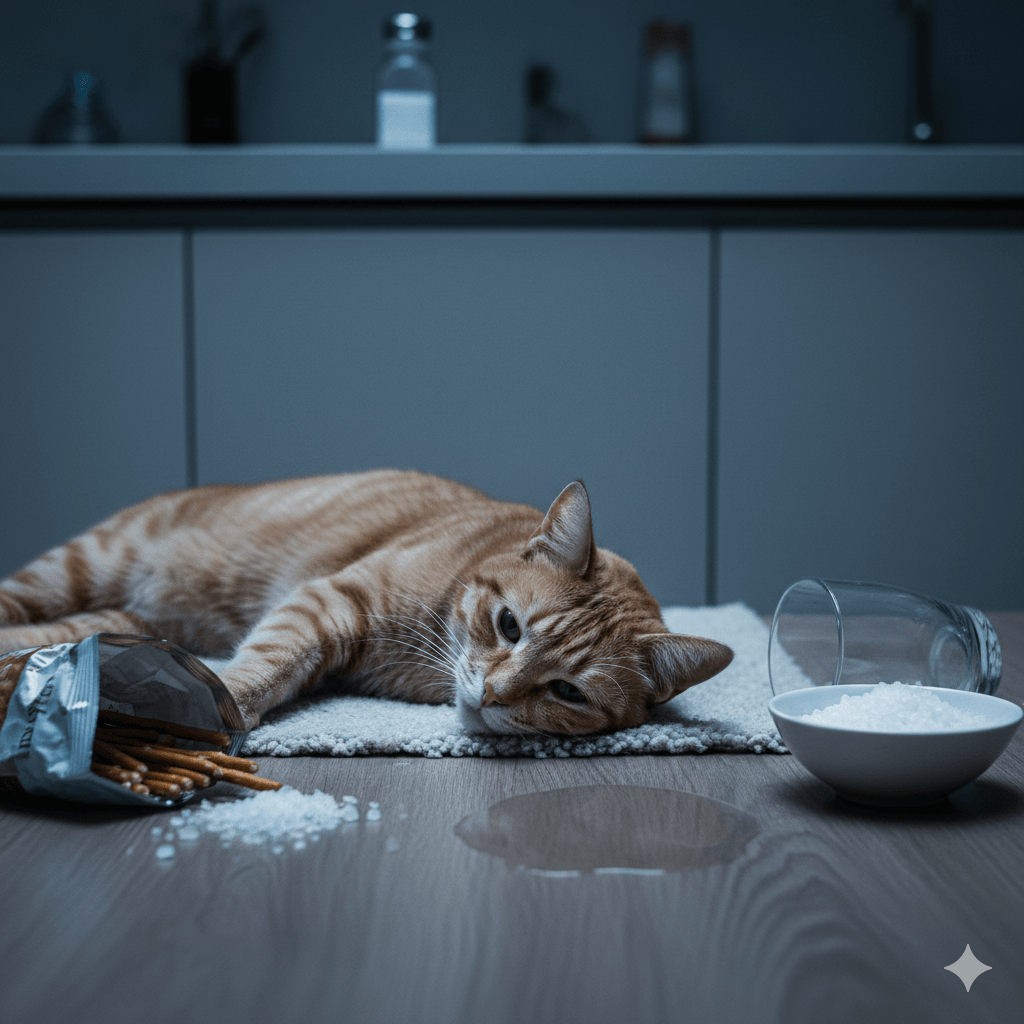Can Cat Urine Kill You? Unraveling the Facts
Cats are beloved companions, cherished for their playful antics and comforting purrs. However, like any pet owner knows, dealing with cat urine is an inevitable part of sharing your home with these furry friends. While it may be unpleasant to clean up, many people wonder: can cat urine actually pose a serious health risk? Could it even be deadly? In this blog post, we’ll explore the science behind cat urine, its potential dangers, and how you can protect yourself and your household from harm while maintaining a harmonious life with your feline companion.
What’s in Cat Urine? Breaking Down the Components
Cat urine is more than just a smelly nuisance. It contains several compounds that contribute to its odor and potential health risks. Here’s a breakdown of what makes up this liquid:
Urea : A compound found in all mammal urine, urea breaks down into ammonia over time, contributing to the strong smell.
Creatinine : This waste product is also present in human urine and helps give cat urine its distinct color and odor.
Urobilinogen : A byproduct of bile pigment metabolism, urobilinogen adds to the yellow hue of urine.
Bacteria : Bacterial growth in old or improperly cleaned urine can amplify odors and pose health risks.
Feline-Specific Proteins : Cats excrete proteins unique to their species, which play a role in territorial marking.
Understanding these components is crucial for assessing the potential risks associated with exposure to cat urine. By knowing what’s in it, you can better grasp why proper cleaning and hygiene are essential.
Health Risks Associated with Cat Urine
While cat urine itself isn’t directly lethal, it can harbor harmful substances and pathogens that might lead to health issues if not addressed promptly. Here are some potential risks to be aware of:
Ammonia Inhalation : Prolonged exposure to high levels of ammonia from decomposing urine can irritate the respiratory system.
Infections : Bacteria in untreated urine can cause skin infections or other illnesses if they come into contact with open wounds.
Allergies : Some individuals may experience allergic reactions due to proteins or chemicals in dried urine particles.
Toxoplasmosis : Though rare, improperly handled litter boxes could expose humans to toxoplasma gondii, a parasite shed in infected cats’ feces but sometimes linked to urine contamination.
Mold Growth : Damp areas contaminated by urine can foster mold, which poses additional respiratory hazards.
It’s clear that while cat urine alone won’t kill you, neglecting its presence can create conditions where health problems arise. Staying informed about these risks allows you to take proactive measures.
Check this guide 👉Top 3 Best Cat Urine Removers: Eliminate Odors Instantly!
Check this guide 👉Understanding Cat Leaking Urine While Resting: Best 7 Tips!
Check this guide 👉How to Collect a Urine Sample from Your Cat: Best 7 Tips!

Potential Risks of Cat Urine | Preventive Measures |
|---|---|
Ammonia inhalation | Ensure good ventilation in your home |
Bacterial infections | Clean spills immediately using gloves |
Allergic reactions | Use hypoallergenic cleaning products |
Toxoplasmosis exposure | Wash hands thoroughly after handling litter |
Mold development | Keep surfaces dry and sanitized |
Who Is Most at Risk? Identifying Vulnerable Groups
Certain groups of people are more susceptible to the adverse effects of prolonged exposure to cat urine. If anyone in your household falls into one of these categories, extra caution should be exercised:
Children : Their developing immune systems make them more vulnerable to infections and toxins.
Elderly Individuals : Older adults often have weaker immune responses, making them prone to complications.
Pregnant Women : Exposure to certain pathogens, like toxoplasma gondii, can pose risks during pregnancy.
People with Respiratory Conditions : Those with asthma or chronic obstructive pulmonary disease (COPD) may experience worsened symptoms due to ammonia fumes.
Immunocompromised Individuals : People undergoing chemotherapy or living with HIV/AIDS face heightened vulnerability to infections.
Understanding who is most at risk underscores the importance of maintaining a clean environment when living with cats. Taking preventive action ensures everyone stays healthy and safe.
Tips for Safe Cleanup and Prevention
Dealing with cat urine effectively requires a combination of proper cleaning techniques and preventive strategies. Follow these tips to minimize risks:
Use Enzyme-Based Cleaners : These break down the organic compounds in urine, eliminating odors and reducing bacterial growth.
Ventilate Your Space : Open windows and use fans to reduce ammonia buildup and improve air quality.
Wear Protective Gear : Gloves and masks can shield you from direct contact with harmful substances.
Regular Litter Box Maintenance : Scoop daily and change litter weekly to prevent bacterial proliferation.
Train Your Cat : Encourage appropriate bathroom habits through positive reinforcement to avoid accidents indoors.
By implementing these practices, you can significantly lower the chances of encountering health issues related to cat urine. Prevention truly is key!
Common Misconceptions About Cat Urine
There are many myths surrounding cat urine and its effects on human health. While some concerns are valid, others are exaggerated or simply untrue. Below, we debunk a few common misconceptions:
Myth: Cat urine is always toxic to humans.
Fact: While it contains compounds like ammonia, cat urine itself isn’t inherently toxic unless exposure is prolonged or in large quantities.Myth: All cats carry harmful diseases through their urine.
Fact: Most healthy cats do not excrete dangerous pathogens in their urine, though hygiene practices are still important.Myth: Cleaning with any household cleaner is sufficient.
Fact: Regular cleaners may mask odors but won’t break down the organic compounds in cat urine, making enzyme-based products more effective.
Understanding these misconceptions helps dispel unnecessary fears while emphasizing the importance of proper care and cleaning routines.
Long-Term Effects of Ignoring Cat Urine Issues
Neglecting cat urine problems can lead to more than just unpleasant smells—it can result in long-term consequences for your home and health. Here’s what could happen if you ignore the issue:
Structural damage to surfaces : Urine seeping into carpets, wood floors, or walls can cause permanent stains and weaken materials over time.
Persistent odor problems : Once urine dries and penetrates deep into surfaces, the smell becomes harder to eliminate without professional intervention.
Increased allergen exposure : Accumulated urine residue can release airborne particles that aggravate allergies or asthma symptoms.
Higher risk of bacterial growth : Untreated areas become breeding grounds for bacteria and mold, posing additional health hazards.
Behavioral issues in cats : Cats may continue marking spots with urine if previous accidents aren’t thoroughly cleaned.
Addressing cat urine promptly prevents these long-term complications, saving you time, money, and stress in the future.
Benefits of Maintaining a Clean Environment Around Cats
Keeping your home clean doesn’t just protect your health—it also enhances your relationship with your cat and creates a happier living space. Here are some benefits of maintaining cleanliness around your feline companion:
Improved air quality : Reducing ammonia levels and eliminating odors ensures fresher, healthier indoor air.
Stronger bond with your pet : A clean environment fosters trust and reduces stress for both you and your cat.
Fewer behavioral problems : Cats are less likely to mark territory or have accidents when their surroundings are consistently tidy.
Enhanced home aesthetics : Removing stains and odors keeps your home looking and smelling inviting.
Peace of mind : Knowing you’ve minimized potential health risks allows you to relax and enjoy your time with your pet.
By prioritizing cleanliness, you create a harmonious environment that benefits everyone—human and feline alike.
Frequently Asked Questions About Cat Urine
Can I get sick from breathing in cat urine fumes?
Yes, inhaling concentrated ammonia vapors over extended periods can irritate your lungs and cause respiratory discomfort.
Does cat urine contain dangerous parasites?
While rare, improper hygiene around litter boxes can expose humans to toxoplasma gondii, though this is primarily transmitted via feces rather than urine.
How often should I clean my cat’s litter box?
Ideally, scoop waste daily and replace the litter entirely once a week to maintain cleanliness.
Are enzyme cleaners necessary for removing cat urine stains?
Enzyme cleaners are highly recommended as they neutralize odors and prevent repeat marking behavior by your cat.
Can cat urine attract pests?
Yes, the scent of urine can draw insects and rodents, so prompt cleanup is essential.
Living Safely with Cats
Sharing your life with a cat brings joy, companionship, and countless memories. While concerns about cat urine and its potential impact on health are valid, understanding the facts empowers you to manage these risks responsibly. By staying vigilant about cleaning, practicing good hygiene, and addressing spills promptly, you can create a safe and happy environment for both you and your feline friend. Remember, knowledge is power—so arm yourself with information and enjoy every moment with your beloved pet!
Poodle Water Dog: Best 7 Expert Tips! – Discover how Poodles excel in water activities, from swimming to training, and unlock their aquatic potential today.
Salt Poisoning in Cats: Best 7 Expert Tips! – Learn the dangers of salt toxicity, spot symptoms early, and discover how to keep your cat safe from this serious health risk.
Salt Poisoning in Dogs: Best 7 Expert Tips! – Learn the dangers of salt toxicity, recognize symptoms, and discover life-saving steps to protect your dog.
Can Too Much CBD Kill a Cat? Best 7 Expert Tips! – Discover the risks, safe dosages, and signs of CBD toxicity to keep your cat safe and healthy.





